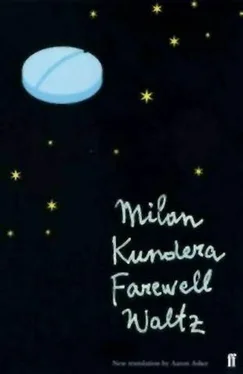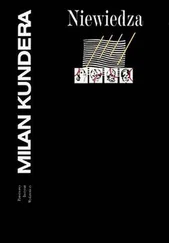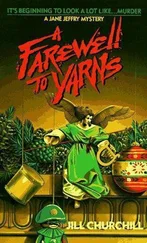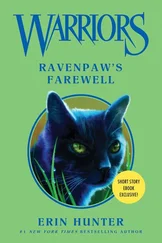The first man to get out had no pole and gave orders; the old gentlemen, like a squad of bizarre lancers, came to attention and then to at ease a few times. Then the man shouted another order, and the squad of old men headed into the park at a run. There they broke ranks, each one running in a different direction, some along the paths, others on the grass. The patients strolling in the park, the children playing, everyone abruptly stopped to look in amazement at the old gentlemen, armed with long poles, launching an attack.
Ruzena too came out of her meditative stupor to watch what was happening. She recognized her father
among the old gentlemen and watched him with disgust but without surprise.
A mutt was scampering on the grass around a birch tree. One of the old gentlemen started to run toward it, and the dog looked at him with surprise. The old man brandished the pole, trying to get the wire loop in front of the dog's head. But the pole was long, the old hands were feeble, and the old man missed his objective. The wire loop wavered around the dog's head while the dog watched curiously.
But another pensioner, one with stronger arms, was already rushing to the old man's aid, and the little dog finally found himself prisoner in the wire loop. The old man pulled on the pole, the wire loop dug into the furry neck, and the dog let out a howl. The two pensioners laughed loudly as they dragged the dog along the lawn toward the parked vehicles. They opened the truck's large door, from which a wave of barking rang out; then they threw the mutt in.
For Ruzena what she was seeing was merely a component of her own story: she was an unhappy woman caught between two worlds: Klima's world rejected her, and Frantisek's world, from which she wanted to escape (the world of banality and boredom, the world of failure and capitulation), had come to look for her here in the guise of this assault team as if it were trying to drag her away by a wire loop.
On a sand path a small boy of about ten was desperately calling his dog, which had strayed into the bushes. Running over to the boy came not the dog but
Ruzena's father, armed with a pole. The boy instantly fell silent. He was afraid to call his dog, knowing that the old man was going to take him away. He rushed down the path to escape him, but the old man too started to run. Now they were running side by side, Ruzena's father armed with his pole and the small boy sobbing as he ran. And then the boy turned around and, still running, retraced his steps. Ruzena's father followed suit. Again they were running side by side.
A dachshund came out of the bushes. Ruzena's father extended his pole toward him, but the dog alertly evaded it and ran over to the boy, who lifted him up and hugged him. Other old men rushed over to help Ruzena's father and tear the dachshund out of the boy's arms. The boy was crying, shouting, and grappling with them so that the old men had to twist his arms and put a hand over his mouth because his cries were attracting too much attention from the passersby, who were turning to look but not daring to intervene.
Ruzena didn't want to see any more of her father and his companions. But where to go? Into her little room, where there was a detective novel that she had not finished and that didn't interest her; to the movies, where there was a film she had already seen; to the lobby of the Richmond, where there was a television set on all the time? She opted for television. She got up from her bench, and amid the clamor of the old men, which was continuing from all sides, she was again intensely conscious of what she had in her womb, and she told herself that it was something sacred. It transformed and
ennobled her. It distinguished her from these fanatics who were chasing dogs. She told herself that she did not have the right to give up, did not have the right to capitulate, because in her belly she was carrying her only hope; her only admission ticket to the future.
When she reached the edge of the park, she caught sight of Jakub. He was standing on the sidewalk in front of the Richmond, watching what was going on. She had only seen him once before, at lunch, but she remembered him. The patient, her temporary neighbor who rapped on the wall every time she turned the radio up a little, was someone she disliked so strongly that Ruzena perceived everything about the woman with attentive loathing.
The man's face displeased her. It looked ironic to her, and she detested irony. She always thought that irony (all forms of irony) was like an armed guard posted at the entrance to her future, scrutinizing her with an inquisitive eye and rejecting her with a shake of the head. She stuck out her chest, deciding to pass in front of the man with all the provocative arrogance of her breasts, all the pride of her belly.
And the man (she was watching him only out of the corner of her eye) suddenly said in a tender, gentle voice: "Come here, come over here…"
At first she didn't understand why he was addressing her. The tenderness in his voice puzzled her, and she didn't know how to respond. But then she turned around and caught sight of a heavy boxer dog with a humanly ugly mug following at her heels.
Jakubs voice attracted the dog. He took him by the collar: "Come with me or you don't stand a chance." The dog lifted his trusting head to the man, his tongue hanging like a cheery little flag.
It was a moment filled with ridiculous, trivial, but obvious humiliation: the man had noticed neither her provocative arrogance nor her pride. She had thought he was talking to her, and he was talking to a dog. She passed in front of him and stopped on the broad front steps of the Richmond.
Two old men armed with poles came rushing across the park toward Jakub. She watched the scene spitefully, unable to keep from taking the old men's side.
Jakub was leading the dog by the collar toward the hotel steps when one of the old men shouted: "Release that dog at once!"
And the other old man: "In the name of the law!"
Jakub pretended not to notice the old men and kept going, but behind him a pole slowly descended alongside his body and the wire loop wavered clumsily over the boxer's head.
Jakub grabbed the end of the pole and brusquely pushed it aside.
A third old man ran up and shouted: "Its an attack on law and order! I'm going to call the police!"
And the high-pitched voice of another old man complained: "He ran on the grass! He ran in the playground, where it's prohibited! He pissed in the kids' sandbox! Do you like dogs more than children?"
Ruzena was watching the scene from the top of the
steps, and the pride that a moment before she had felt only in her belly flowed throughout her body, filling her with defiant strength. Jakub and the dog came up the steps near her, and she said: "It's not allowed to take a dog inside."
Jakub answered her calmly, but she could no longer back down. Her legs apart, she planted herself in front of the Richmond's wide doorway and insisted: "This is a hotel for patients, not a hotel for dogs. Dogs are prohibited here."
"Why don't you get a pole with a loop too, young lady?" said Jakub, trying to go through the doorway with the dog.
Ruzena caught in Jakub's words the irony she so detested and that sent her back where she had come from, back where she did not want to be. Anger blurred her sight. She grabbed hold of the dog by the collar. Now they were both holding him. Jakub was pulling him in and she was pulling him out.
Jakub seized Ruzena's wrist and pried her fingers loose from the collar with such violence that she staggered.
"You'd rather see poodles in cradles than babies!" she shouted after him.
Jakub turned around and their eyes met, joined by sudden, naked hatred.
The boxer scampered around the room curiously, unaware that he had just escaped danger. Jakub stretched out on the daybed, wondering what to do with him. He liked the lively, good-natured dog. The insouciance with which, in a few minutes, he had made himself at home in a strange room and struck up a friendship with a strange man was nearly suspicious and seemed to verge on stupidity. After sniffing all corners of the room, he leaped up on the daybed and lay down beside Jakub. Jakub was startled, but he welcomed without reservation this sign of camaraderie. He put his hand on the dog's back and felt with delight the warmth of the animal's body. He had always liked dogs. They were familiar, affectionate, devoted, and at the same time entirely incomprehensible. We will never know what actually goes on in the heads and hearts of these confident, merry emissaries from incomprehensible nature.
Читать дальше










